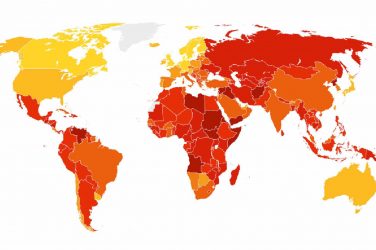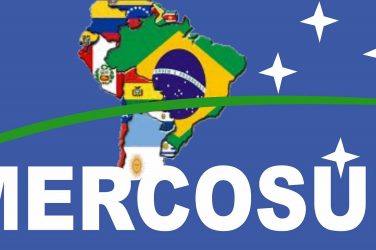Brazil’s political turmoil is going into overdrive, exacerbated in recent days by the discovery of a tape recording allegedly of President Michel Temer approving some US$ 600,000 in hush money to pay off a disgraced political ally.
Temer denies wrongdoing and is rebuffing calls to resign even though the new reports are consistent with others that implicate the Brazilian leader and his associates.
Along with leaked audio of damning conversations, a prominent news outlet has published photos said to show the wads of cash used for the payoffs.
Despite the severity of this crisis, as a scholar of the political economy of corruption, I see some grounds for optimism. As Paul Lagunes and I have previously written, the ongoing investigations and convictions demonstrate that, overall, Brazil’s independent prosecutors and judges remain deeply committed to investigate and punish high-level corruption.
They have strong public support, and their efforts to end the impunity of the business and political elite are beginning to succeed.
Whatever happens with Brazil’s leadership, more aggressive law enforcement against corruption is going to be necessary. And that’s not all.
Temer assumed the presidency a year ago on an acting basis and then officially a few months later. He came to power through the controversial ouster via impeachment of his democratically elected predecessor, Dilma Rousseff. Calls for his own removal have never let up.
The latest protests are calling for presidential elections, scheduled for October 2018, to take place immediately. Should Temer’s presidency survive, he will have trouble governing as his approval rating had collapsed into the single digits even before this damning news cycle.
Ongoing high-level efforts to prosecute corrupt politicians and business leaders indicate that elements of the country’s system of accountability are working. At the same time, however, they suggest that political corruption goes beyond the accusations of embezzlement and payoffs to public officials that have fueled the scandals now threatening to topple Temer.
The alleged bribery that surfaced this week is related to a broad investigation of Brazil’s meatpacking industry, which includes the world’s biggest beef exporter and the world’s largest poultry company.
This investigation is proceeding alongside the prosecution of widespread bribery tied to Petrobras, the country’s vast oil company. But ensuring government integrity will take more than cracking down on any specific sphere of wrongdoing.
Corruption is a familiar risk for all governments, and a range of policy responses can be effective, such as policy redesign, civil service reform, increased transparency and strengthened oversight, as I wrote in my book on this topic with professor Bonnie Palifka.
Complicating Brazil’s anti-corruption drive, however, are the government’s plans for deep economic and social policy reforms that would inflict pain on much of the population. To carry out such policies, Brazil needs the electorate’s confidence and the ability to explain how present sacrifices can lead to future benefits.
Given their ingrained unpopularity, Temer and his allies were always going to have trouble making that case to the public. The latest scandals will make such persuasion all but impossible.
This crisis should be leveraged for the good of Brazilian democracy. Controlling corruption is possible, but honest prosecutors and judges can’t do it by themselves.
A Deeper Problem
There are many obstacles that stand in the way of a cleaner political system. Brazil has over 30 political parties and none of them can win an outright legislative majority.
Lawmakers must constantly renegotiate their political loyalties, and all presidents have a motive to deploy questionable tactics to amass and sustain governing coalitions.
Having a multitude of political parties may seem democratic, but it also invites legislative chaos, with small parties competing for payoffs in exchange for backing the president’s policies.
Brazil has actively debated in the past whether to shift to a parliamentary system, an option voters rejected in a 1993 plebiscite. That shift might help solve some political problems, but it’s not clear that substituting a prime minister for a president is an improvement.
If drastic constitutional reform is too radical to contemplate, setting thresholds for parties to meet before their lawmakers may hold seats in Congress could help. Germany offers one model for this approach.
Reforms along those lines would not end corruption by themselves. But they would reduce the incentives for politicians to govern South America’s largest country through graft.
Although it will be hard for Brazilians to look beyond their daily dose of scandal, the real question is whether popular pressure will bring about reforms with the potential to revitalize Brazilian democracy.
Susan Rose-Ackerman is a Henry R. Luce Professor of Jurisprudence (Law and Political Science), Yale University. She is a board member of the Coalition for Integrity a U.S.-based organization concerned with anti-corruption and good governance; she will be a member of a group advising the Inter-American Development Bank on anti-corruption policy.
This article was originally published in The Conversation. Read the original article here: http://theconversation.com/brazils-tide-against-corruption-swells-78024












